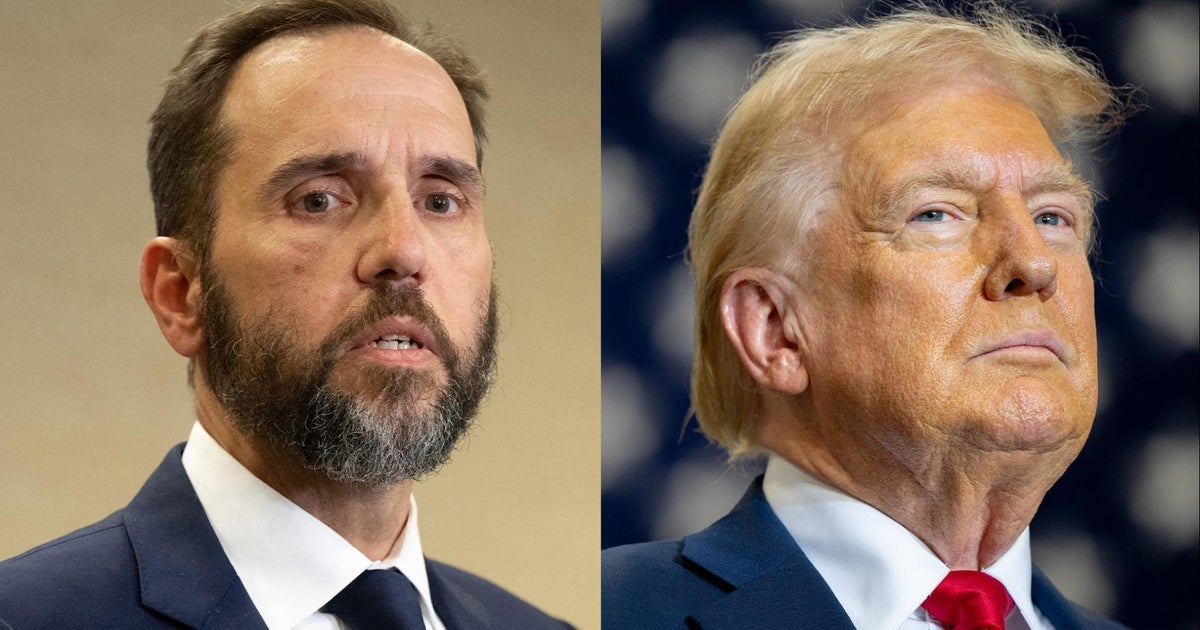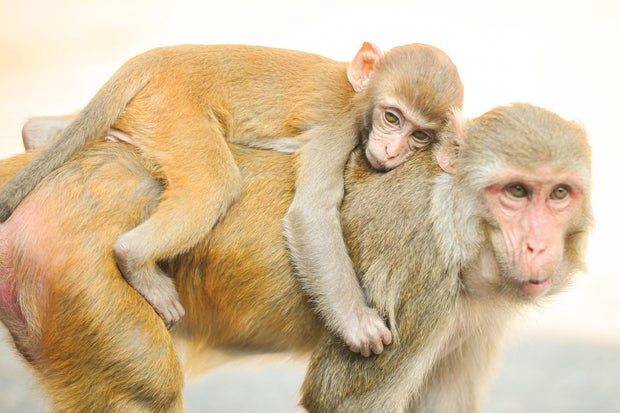CBS News
National Women’s Soccer League commissioner announces CPKC Stadium will be site of 2024 championship

CPKC Stadium, the first soccer stadium built for a women’s professional team, will be the site of the 2024 National Women’s Soccer League championship game.
NWSL Commissioner Jessica Berman joined “CBS Mornings” to discuss why the historic stadium — which opened earlier this year and is the home of the Kansas City Current — was chosen for this year’s championship game. Berman said for the first time, there is a facility built specifically for women, and the details within the 11,500 seat stadium were designed to remind people of that.
“When you walk into the building, Title IX is displayed on the wall. It’s a constant reminder. The artists that are displayed around the building are female artists, female chefs. But even more tactically, the bathrooms are all unisex,” Berman said. “This was just built with a different level of care and attention to the fact that it is the home of a women’s team.”
Berman also discussed how the sport is growing. Regular season attendance for NWSL games surpassed 1 million fans for the third consecutive season, breaking the milestone “earlier in the season than ever before,” according to the NWSL.
“It is a movement, and the investment that’s coming into this league is unlike anything in history. So you look at it from an ownership perspective, from a sponsorship perspective, from a media standpoint, having partners like you at CBS and our other partners who broadcast our games in live television and primetime for the biggest audience to see. We have to ask ourselves and believe that this is a sustainable movement.”
National broadcast viewership to date is up 95% from the 2023 season, according to the NWSL. Berman attributes that to legendary players like Alex Morgan, who was left off the roster for the 2024 Paris Olympics team, but who Berman said has helped build the sport, along with others.
“I think everything we’re doing today is built on the shoulders of the players who got us to this point. Alex is one of them, but even before Alex, we have icons of this game in the 80s and the 90s who really built the foundation to create the perception that when we think of greatness and soccer in this country, we actually think of women,” Berman said.
Berman said the focus is now on youth participating in soccer.
“We were actually the first league to let under 18 players into our league, and when I think of that I think of my own child who’s 16 and imagine him competing on the field and it’s hard to imagine, but it’s an incredible moment.”
The NWSL championship game airs live on CBS and streams on Paramount+ on Nov. 23.
CBS News
In Trump 2020 election case, Jack Smith asks judge for time to determine “appropriate course”

Washington — Special counsel Jack Smith has asked the federal district court in Washington to forego current deadlines in the case against President-elect Donald Trump related to the 2020 election to allow prosecutors more time to assess the “unprecedented circumstance” arising out of his election Tuesday to serve a second term in the White House.
Smith told U.S. District Judge Tanya Chutkan in a one-paragraph filing that his office would like additional time to “determine the appropriate course going forward consistent with Department of Justice policy.” He said prosecutors will provide more information to the court by Dec. 2.
Trump defeated Vice President Kamala Harris in the race for the White House on Tuesday and will be sworn-in for a second term on Jan. 20. As a result of Trump’s victory, the Justice Department and special counsel’s office are discussing how to wind down the ongoing federal prosecutions against Trump.
The Justice Department has a longstanding policy against prosecuting a sitting president.
Citing the outcome of the election and Trump’s upcoming inauguration, Smith told the court that the deadlines in the pretrial schedule set by Chutkan should be tossed out “to afford the government time to assess this unprecedented circumstance.”
Trump is facing four federal charges in the case arising out of what Smith alleges was an unlawful scheme to subvert the transfer of power after the 2020 election. He pleaded not guilty and has denied wrongdoing.
Proceedings in the case were halted for months as Trump pursued claims that he was immune from federal prosecution all the way up to the Supreme Court. The high court ruled in July that former presidents cannot face charges arising from official actions taken while in the White House.
The case returned to Chutkan in August, and a grand jury returned a new indictment against Trump that narrowed the allegations against him to comply with the Supreme Court’s ruling. The two sides have been arguing in court papers about whether the new charges can stand.
CBS News
Nov 8: CBS News 24/7, 10am ET

Watch CBS News
Be the first to know
Get browser notifications for breaking news, live events, and exclusive reporting.
CBS News
What we know after 43 monkeys escaped a South Carolina research facility

More than 40 monkeys escaped from a research facility in South Carolina on Wednesday, prompting warnings for nearby residents to secure their doors and windows. The fugitive monkeys had not been captured as of Friday morning.
Here is what we know so far:
Where exactly did the monkeys escape in South Carolina?
The primates broke loose from Alpha Genesis in Yemassee, Beaufort County in South Carolina.
The company confirmed 43 rhesus macaque primates escaped from an enclosure at one of the company’s facilities.
The Yemassee Police Department said on Thursday that traps with bait were set up and thermal imaging cameras were being used in an effort to capture the monkeys.
“Residents are strongly advised to keep doors and windows secured to prevent these animals from entering homes,” police said. “If you spot any of the escaped animals, please contact 911 immediately and refrain from approaching them.”
How did the monkeys escape the research facility?
Greg Westergaard, CEO of Alpha Genesis, told CBS News on Thursday that a caretaker inadvertently failed to secure a door at the enclosure, allowing the monkeys to roam free.
“It’s really like follow-the-leader. You see one go and the others go,” he said. “It was a group of 50 and 7 stayed behind and 43 bolted out the door.”
He told CBS News on Friday that while they have not captured any of the monkeys, they are staying close to the facility.
“They’re just being goofy monkeys jumping back and forth playing with each other,” he said. “It’s kind of like a playground situation here.”
Westergaard said the company has put out baited traps but the monkeys are not going inside them yet.
“They’re jumping down and taking the food and then jumping back up on the fence and the tree line,” he added. “They’re watching us the same way we’re watching them.”
He acknowledged that it would be a long process to get them back and that they didn’t want to chase the monkeys because that would spook them and make them run away.
“We’ve got them very close,” Westergaard said. “This is all like what we want to see.”
What kind of monkeys are they?
The monkeys that escaped are rhesus macaque primates, which have brown fur with red faces and ears. They have close-cropped hair on their heads, which accentuates their very expressive faces.
The rhesus macaques are Asian, Old World monkeys that are primarily found in Afghanistan, Pakistan, India, Southeast Asia and China.
Md Rafayat Haque Khan/ Eyepix Group/Future Publishing via Getty Images
Rhesus macaques were imported to the U.S. in the 1970s for biomedical research in laboratories, according to the New England Primate Conservancy.
Rhesus macaques are “bold, extremely curious, and adventurous monkeys” and the species is “highly adaptable to coexisting alongside humans,” the conservancy says.
The rhesus macaque’s typical diet includes roots, fruit, seeds, and bark as well as insects and small animals.
What were they using the monkeys to test?
According to its website, Alpha Gensis breeds monkeys and provides “nonhuman primate products and bio-research services” across the globe. The company’s clinical trials reportedly include research on progressive brain disorders.
Local authorities said Thursday that the escaped primates were “very young females weighing approximately 6-7 lbs” and had never been used for testing due to their age.
Alpha Genesis says its staff of veterinary technicians and animal specialists work with cynomolgous, rhesus and capuchin monkeys.
The Post and Courier newspaper reported last year that Alpha Genesis won a federal contract to oversee a colony of 3,500 rhesus monkeys on South Carolina’s Morgan Island, known as “Monkey Island.”
The U.S. Centers for Disease Control and Prevention confirmed in a statement that the monkeys were previously living on Morgan Island as “free-range monkeys” and were brought to the Alpha Genesis facility “for conditioning to be around people.”
The facility is registered with the CDC as a nonhuman primates importer, which means it “must meet standards for the importation, quarantine, and use of NHPs,” the agency said.
The CDC added that “the risk to the public is low as long as people do not approach or come in contact” with the monkeys.
How often do research monkeys escape?
This is not the first time primates have escaped from Alpha Genesis.
Eight years ago, 19 primates escaped from the company’s facility but were recaptured about six hours later.
CBS affiliate WCSC in Charleston at the time reported that local officials said the escapes were not infrequent but generally the monkeys return to the compound because they know that is where there is food.
“Every couple of years we’ll have one or two that get out. We have never had this many get out,” Westergaard told CBS News on Friday.
Last year in Pennsylvania, dozens of lab monkeys escaped after a truck carrying 100 of the animals crashed. All the primates were later accounted for.









